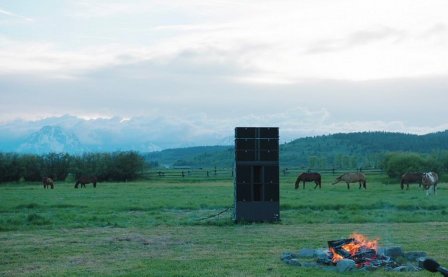I have a criterion when I enter into the formal listening experience associated with writing about a record. Because artists often spend a great deal of time, money, and, most of all, personal energy creating these collections of sound waves, I believe it is crucial for a writer to devote the same amount of energy before either praising or dissing a record. One of the most important points to pay attention to when listening to an album is context, particularly when listening to a record by a well-established band, which, in this case, is Low, with their eighth 'proper album' (not that we really care what a 'proper album' is these days).
That said, let's set up the context of where the Duluth, Minnesota trio have come from. Since their inception in 1993, they have released three full-lengths on Vernon Yard, three full-lengths on Kranky, and one full-length on their new label, Sub Pop. Longtime member Zak Sally left the group after a tour opening for Radiohead, and the group then recorded 2005's The Great Destroyer, which received all kinds clichéd comments about it, like 'a rockier Low.' For those expecting a rebirth of the group's sound after reading about The Great Destroyer, there wasn't anything unexpected to be found. But somehow, nearly 14 years since their original inception, Drums and Guns is a pleasant surprise, and a modest left-turn away from their usual sound, full of guitar-driven songs with light electronic atmospheres.
Opening track “Pretty People” sounds like the opening to another Low record, perhaps Things We Lost In The Fire, with a new tint of sound coloring. But don't let this first cut deceive you -- Dave Fridman's production on Drums and Guns finds Low occupying new timbres in the audio spectrum: more specifically, the up-front loops and electronics found throughout the majority of its 13 songs. In the past, Low's use of electronics have been buried in a wash of sound, rather than occupying the driver's seat, as they do this time on tracks like “Belarus,” “Always Fade,” and the toe-tapping rhythms of “Breaker.” Yes, you did read that correctly: toe-tapping. It seems that a tour with Radiohead might have rubbed off a bit on the trio (especially in cuts like “Hatchet” and the piano-led, “I Want None Of This”-esque “Take Your Time”).
Many of the usual elements that have made Low such a tremendous success are still present on Drums and Guns. Vocalist Alan Sparhawk and wife Mimi Parker exchange lead duties and familiar harmonic melodies throughout the duration of the CD, as they have with all of their discs. Sparhawk's melodies are still echoes of their previous incarnations on material like 1999's Secret Name or 2001's damn-near perfect LP, the Steve Albini-engineered Things We Lost In The Fire. There are still a few surprises, though, such as the unpredictable melody on the chorus of “Sandinista,” or the chain-gang channeling on “Your Poison.”
But the true gem of the bunch is the dreamy drone and pulsating tremolo behind “Murderer.” Even this far into their career, the trio can still pull out unforgettable gems such as these. The Great Destroyer was essentially a teaser record for the twists that Drums and Guns pulls out; the sonic palette Fridman was exploring on the previous LP finds its bearings on this second effort for Sub Pop. The disc never succumbs to the obvious formula of simply playing everything faster. Instead, slow rhythms are backed up by more sped-up accompaniment.
Simply put, Drums and Guns is the LP that makes sense of the switch from Kranky to Sub Pop. It is still more accessible than previous Low records, as The Great Destroyer was, but doesn't ever compromise the pure sincerity that the trio have conveyed throughout their career. It is another chapter to be bookmarked in the novel of the band's existence, and one of the most enjoyable releases of 2007 so far.
More about: Low




